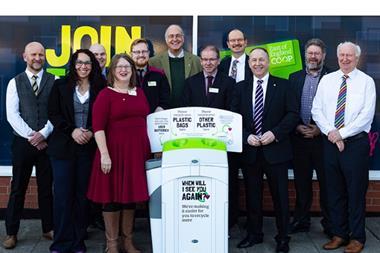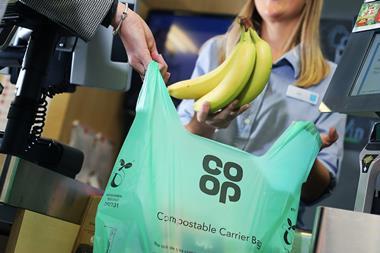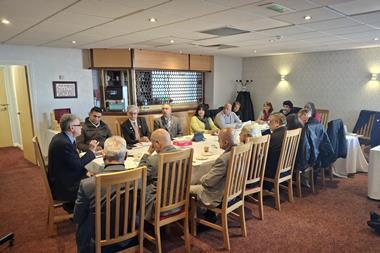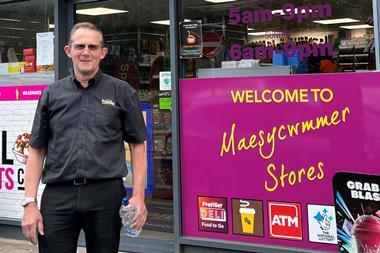East of England Co-operative has seen a 25% reduction in both food waste and the cost of waste disposal since it started selling products past their ‘best before’ date at discounted prices.
Speaking at the ACS Heart of the Community event in London on Tuesday, East of England joint ceo Roger Grosvenor said the initiative, which was launched in December 2017, had saved 260,000 items going to anaerobic digestion waste disposal plants.
Under the Co-op Guide to Dating initiative, tinned foods, packets, cereal, fruit and vegetables, bread, cake and dried food are all sold for 10p after they have passed their best before date.
Grosvenor was speaking on an ‘environment’ panel alongside C-Store editor David Rees, Keep Britain Tidy chief executive Allison Ogden-Newton, and Hubbub founder Trewin Restorick.
He advised independent retailers to “empower your staff to make decision on ‘reduce to clear’”.
The panel also focused on the practicalities of Deposit Return Schemes, which the government is set to consult on, and other in-store initiatives designed to reduce plastic packaging and waste.
Hubbub, an environmental charity, has just launched a recycling on-the-go trial across Leeds city centre in conjunction with the local council, with the backing of 23 brands including the Association of Convenience Stores.
Restorick said the public had already responded well to the trial, demonstrating a thirst for recycling. “People aren’t necessarily redeeming the coupons – they just want to recycle.”
C-Store editor David Rees added: “Retailers are not solely responsible for plastic waste. I think everyone needs to understand that there is an entire supply chain at work from the factory to the end consumer and any solution needs to see all the elements of that supply chain playing their part, while central and local government also need to make the UK’s different recycling regimes a lot more coherent and consistent across county boundaries.
“Plastic waste is an issue that is not going away, and I think it’s important that retailers make some sort of visible progress so that their customers know they take the issue seriously. There are lots of small changes that are worth looking into, such as compostable coffee cups or refillable solutions for certain products.”
In a separate panel session on crime, Stephen Hammond MP pledged to use his position as chair of the All-Party Parliamentary Group on Retail Crime to promote the message that people should expect to be challenged on their age when buying age-restricted products.
Figures from the ACS crime report show that enforcing an age-restricted policy is one of the top three triggers of abuse and violence against people working in convenience stores.
Highlighting the importance of messaging to deter crime, the Wimbledon MP said: “There’s huge variation across the country in terms of attitudes and messaging.
“If you give out the message we won’t investigate a crime under a certain level, you’re giving out the message that it’s ‘open season chaps’. Messaging is really importance.”
ACS chief executive James Lowman said: “The convenience sector is facing significant challenges, including variable and sometimes unacceptable police response to crimes committed against retailers and their staff, rising employment costs, and defining the right ways for local shops to help customers to recycle and reduce their environmental impact.
”Keeping these issues high on the agenda of both local and national government, despite the ongoing Brexit negotiations and other priorities, is crucial if we are to help deliver workable policies that support local shops.”





























No comments yet